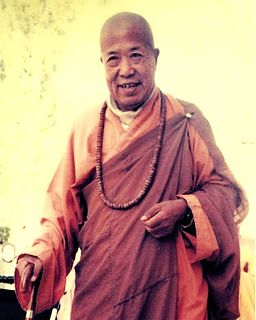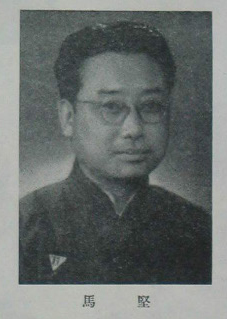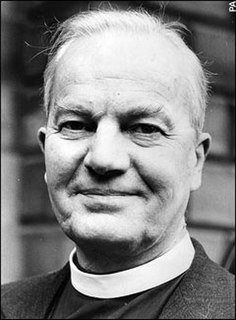 W
WBaizhang Huaihai (720–814) was a Chinese Zen master during the Tang Dynasty. He was a dharma heir of Mazu Daoyi. Baizhang's students included Huangbo, Linji and Puhua.
 W
WDaochuo, was a Chinese Buddhist scholar of the Mahāyāna Mahāparinirvāṇa Sūtra who later became an eminent scholar of Pure Land Buddhism. In Chinese Buddhist tradition, he is considered the second patriarch of Pure Land Buddhism while In Jōdo Shinshū, he is considered the Fourth Patriarch.
 W
WDaoxuan was the Chinese Buddhist monk and patriarch of the Vinaya school, who wrote both the Continued Biographies of Eminent Monks and Standard Design for Buddhist Temple Construction. In legends he is attributed with the transmission of the Buddha relic called Daoxuan's tooth, one of the four tooth relics enshrined in the capital of Chang'an during the Tang dynasty. He is said to have received the relic during a night visit from a divinity associated with Indra.
 W
WThomé H. Fang was a Chinese philosopher.
 W
WGan Ji was a Taoist priest who lived during the late Eastern Han dynasty of China.
 W
WHanshan is a figure associated with a collection of poems from the Chinese Tang Dynasty in the Taoist and Chan tradition. No one knows who he was, when he lived and died, or whether he actually existed. In the Chinese Buddhist tradition, Hanshan and his sidekick Shide are honored as emanations of the bodhisattvas Mañjuśrī and Samantabhadra, respectively. In Japanese and Chinese paintings, Hanshan is often depicted together with Shide or with Fenggan, another monk with legendary attributes.
 W
WHongzhi Zhengjue, also sometimes called Tiantong Zhengjue (1091–1157), was an important Chinese Chan Buddhist monk who authored or compiled several influential texts. Hongzhi's conception of silent illumination is of particular importance to the Chinese Caodong Chan and Japanese Sōtō Zen schools. Hongzhi was also the author of the Book of Equanimity, an important collection of kōans
 W
WHsuan Hua, also known as An Tzu and Tu Lun, was a monk of Chan Buddhism and a contributing figure in bringing Chinese Buddhism to the United States in the 20th century.
 W
WNanyue Huisi, was an eminent Chinese Buddhist monk, traditionally regarded as the third patriarch of the Tiantai school. According to Sasaki, Huisi "was the leading authority on the Lotus Sutra of his time."
 W
WDerek Lin is a Taiwanese-American author in the Tao genre.
 W
WLiu Zhi, or Liu Chih, was a Chinese Sunni Hanafi-Maturidi scholar of the Qing dynasty, belonging to the Huiru (Muslim) school of Neoconfucian thought. He was the most prominent of the Han Kitab writers who attempted to explain Muslim thought in the Chinese intellectual climate for a Hui Chinese audience, by frequently borrowing terminologies from Buddhism, Taoism and most prominently Neoconfucianism and aligning them with Islamic concepts. He was from the city of Nanjing. His magnum opus, T'ien-fang hsing-li or 'Nature and Principle in the Direction of Heaven', was considered the authoritative exposition of Islamic beliefs and has been republished twenty-five times between 1760 and 1939, and is constantly referred to by Muslims writing in Chinese.
 W
WJun Hong Lu is the leader and the founder of the organisation Guan Yin Citta Dharma Door along with several other religions organisations owned by himself. Controversially, the Guan Yin Citta Dharma Door created by Lu was denounced by Malaysian Buddhist Community and Singapore Buddhist Federation.
 W
WYusuf Ma Dexin was a Hui Chinese Hanafi-Maturidi scholar from Yunnan, known for his fluency and proficiency in both Arabic and Persian, and for his knowledge of Islam. He also went by the Chinese name Ma Fuchu. He used the Arabic name Abd al-Qayyum Ruh al-Din Yusuf. He was also styled as "Mawlana al-Hajj Yusuf Ruh al-Din Ma Fujuh".
 W
WMuhammad Ma Jian was a Hui-Chinese Islamic scholar and translator, known for translating the Qur'an into Chinese and stressing compatibility between Marxism and Islam.
 W
WNan Huai-Chin was a spiritual teacher of contemporary China. He was considered by many to be the major force in the revival of Chinese Buddhism. While Nan was regarded by many in China as one of the most influential Chan Buddhist teachers, he was little known outside the Chinese cultural sphere. Nan died at the age of 94 on Sept. 29th, 2012 in Suzhou, China.
 W
WTaixu, was a Buddhist modernist, activist and thinker who advocated the reform and renewal of Chinese Buddhism.
 W
WTánluán was a Chinese Buddhist monk. He is credited by Hōnen as the founder of Pure Land Buddhism in China. He is also considered the Third Patriarch of Jōdo Shinshū, a popular school of Buddhism in Japan.
 W
WTang Xiangming was a Chinese naval officer. Tang studied Naval warfare in France and the United Kingdom. In 1905, he joined the Chinese United League (Tongmenghui). In 1911, during the Wuchang Uprising, Tang, under the command of Admiral Sa Zhenbing, sailed to Hankou as part of the Qing Navy's assistance to the Qing Army operations in the area. In December 1915, he supported Yuan Shikai's creation of the Empire of China (1915–1916). After Yuan's death, he supported the Zhili clique until their defeat by the Fengtian clique in the Second Zhili–Fengtian War in 1924. In 1930, he supported Shanxi warlord Yan Xishan in opposing Chiang Kai-shek. In 1933, he became a member of the China Democratic Socialist Party. During the Second Sino-Japanese War, he went to Chongqing. After the end of the Chinese Civil War, he stayed on the mainland and died in Beijing at the age of 90. He was the younger brother of Tang Hualong.
 W
WTanxu was a Chinese Buddhist monk and a 44th generation lineage holder of the Tiantai school, taught by Master Dixian. Tanxu is known as one of the most influential monks to have had lived during the late Qing and Republican periods of Chinese history, spreading and invigorating the practice of Buddhism throughout the region. He was also famous for constructing several Buddhist temples and institutes in Northern China in the early 20th century. He also achieved renown through his buildings, due to his integration of European industrial construction techniques and traditional Chinese methods.
 W
WThomas Forsyth Torrance, commonly referred to as T. F. Torrance, was a Scottish Protestant theologian and minister. Torrance served for 27 years as professor of Christian dogmatics at New College, in the University of Edinburgh. He is best known for his pioneering work in the study of science and theology, but he is equally respected for his work in systematic theology. While he wrote many books and articles advancing his own study of theology, he also edited the translation of several hundred theological writings into English from other languages, including the English translation of the thirteen-volume, six-million-word Church Dogmatics of Swiss theologian Karl Barth, as well as John Calvin's New Testament Commentaries. He was a member of the famed Torrance family of theologians.
 W
WWang Mingdao was an independent Chinese Protestant pastor and evangelist imprisoned for his faith by the Chinese government from 1955 until 1980. He has been called the "Dean of the House Churches."
 W
WWansong Xingxiu or Wansong Yelao (1166–1246) was a Chinese Buddhist monk who lived under the Jin dynasty and Mongol Empire. He was an influential member of the Caodong school of Chan Buddhism.
 W
WWei Yuan, born Wei Yuanda (魏遠達), courtesy names Moshen (默深) and Hanshi (漢士), was a Chinese scholar from Shaoyang, Hunan. He moved to Yangzhou in 1831, where he remained for the rest of his life. Wei obtained the provincial degree (juren) in the Imperial examinations and subsequently worked in the secretariat of several prominent statesmen, such as Lin Zexu. Wei was deeply concerned with the crisis facing China in the early 19th century; while he remained loyal to the Qing Dynasty, he also sketched a number of proposals for the improvement of the administration of the empire.
 W
WJohn Ching Hsiung Wu was a Chinese jurist and author. He wrote works in Chinese, English, French, and German on Christian spirituality, Chinese literature and on legal topics.
 W
WYijing, formerly romanized as I-ching or I-tsing, was a Tang-era Chinese Buddhist monk famed as a traveller and translator. His account of his travels is an important source for the history of the medieval kingdoms along the sea route between China and India, especially Srivijaya in Indonesia. A student of the Buddhist university at Nālandā, he was also responsible for the translation of many Buddhist texts from Sanskrit and Pali into Chinese.
 W
WYuanwu Keqin (1063–1135) was a Han Chinese Chan monk who compiled the Blue Cliff Record.
 W
WZhang Sanfeng was a legendary Chinese Taoist who invented T'ai chi ch'üan and was purported to have achieved immortality. According to various accounts, he was born in Shaowu, Nanping, Fujian during the Southern Song dynasty and lived for over 307 years until the mid-Ming dynasty. His given name was Tong (通) and his courtesy name was Junbao (君寶,君宝). He specialised in Confucian and Taoist studies, scholarly and literary arts. During the reign of Emperor Shizu in the Yuan dynasty, he was nominated as a candidate to join the civil service and held office as the Magistrate of Boling County. While touring around the mountainous regions near present-day Baoji, Shaanxi, he saw the summits of three mountains and decided to give himself the Taoist name "Sanfengzi" (三丰子), hence he also became known as "Zhang Sanfeng".
 W
WZhu Hong Chinese Buddhist leader and anti-Jesuit. He was known as the “Master of Yunqi”, after a monastery restored in his honor. He was born in Hangzhou into a family with the surname Shen. Zhu was an excellent student, although he never succeeded along the path of officialdom. His first connection to Buddhism was that of the Pure Land variety. After failure in the official examinations he became a monk at thirty-one despite the existence of his second wife, who later became a nun. Zhu Hong died at the age of eighty-one. Zhu Hong is best remembered for his persistent hostility to Roman Catholicism. Zhu's writings are a direct rebuttal to the Jesuit Matteo Ricci (利瑪竇).